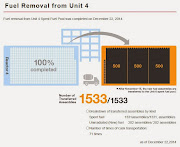So, the so-called "STAP cells" have undergone gender reassignment - from "princess" cells as Ms. Obokata (lead author of the two Nature papers) once wanted to name them, to "my sons".
There's got to be a better profession for this so-called researcher than being a researcher. A comedienne or a politician comes to mind.
According to Mainichi Shinbun (6/11/2014), Ms. Obokata, who has been staying at a hospital, has been in fact "advising" Riken researchers how to create the so-called STAP cells since last month.
Mainichi also quotes the lead attorney employed by Ms. Obokata (she has four attorneys), who told the press that his client says she wants to look for her sons (STAP cells) whom she has been separated from.
One prominent Japanese scientist (and a mother) who heads a laboratory in a US research institution is furious, and she tweeted, "You have already made a mockery of biology. Stop insulting women and female researchers further. I'm ashamed."
Other net citizens wonder aloud how Ms. Obokata could look for her "sons" when the "sons" may not have been born to begin with.
Nikkei Science and NHK reported today (6/11/2014) that her "sons" may not be STAP cells but ES cells (embryonic stem cells) with a particular genetic defect. That particular defect, "trisomy" (having three copies) of chromosome 8, has been found in almost all cells that were presented as STAP cells which was supposedly made from one-week-old mice.
Trisomy of chromosome 8 results in death of an embryo. In other words, there cannot be any mouse born with trisomy of chromosome 8, and STAP cells cannot be made from cells taken from a mouse with trisomy of chromosome 8.
On the other hand, 20 to 30 percent of cultured ES cells are known to have trisomy of chromosome 8, according to Nikkei Science and NHK who quote both Riken researchers and Tokyo University researchers who analyzed DNA of the STAP cells.
Oh well, minor details for non-scientists or people with little to no interest in science who are the majority of people in Japan and probably elsewhere. Post-Fukushima Japan (and perhaps elsewhere) seems to think that if you cannot 100% prove certain things do not exist - be they STAP cells or acute effect of long-term low-dose radiation exposure - then it is possible, or even highly probable that these things do exist.
戦争の経済学
-
ArmstrongEconomics.com, 2/9/2014より:
戦争の経済学
マーティン・アームストロング
多くの人々が同じ質問を発している- なぜ今、戦争の話がでるのか?
答えはまったく簡単だ。何千年もの昔までさかのぼる包括的なデータベースを構築する利点の一つは、それを基にいくつもの調査研究を行...
10 years ago



 Tokyo Time
Tokyo Time
![[Most Recent Quotes from www.kitco.com]](http://www.kitconet.com/charts/metals/gold/t24_au_en_usoz_2.gif)



9 comments:
Obokata is laying claim as one who is more "in stead" than any other.
More of a biologist.
More of a dupester.
More of a mother of "daughters" and "sons".
More qualified than any other to anything she says is of value as she has the keys to the language.
Soon, any regard of her she does not agree with will be "fathered" out of existence.
She simply has "more", of anything, than you do.
/sarc
Laprimavera, you do yourself a disservice to place the same weight behind strap cells and long term low dose (maybe) effects of ionising radiation.
Anon above, you missed the word "acute".
You are right, I missed the word ' acute' sorry. However, I still fail to understand your use of 'ling term' unless of course you have a crystal ball :)
Oops, 'long term'
You're just jealous of this eerie woman for being in the spotlight aren't you?
Yes, we get it. Women should stay out science. They'll just screw everything up unlike all those brilliant male scientists and engineers at TEPCO and in the Japanese nuclear industry.
10:16,
Obokata is practicing of a "science", all right.
She may have promise of a "skill set" that the world suspects she tells us of, but has yet to acknowledge in herself.
A world of "work" awaits Miss Obo, trust in that.
lol
--and now, Yoshiki Sasai has killed himself. Is Ms. Obokata to blame?
Post a Comment